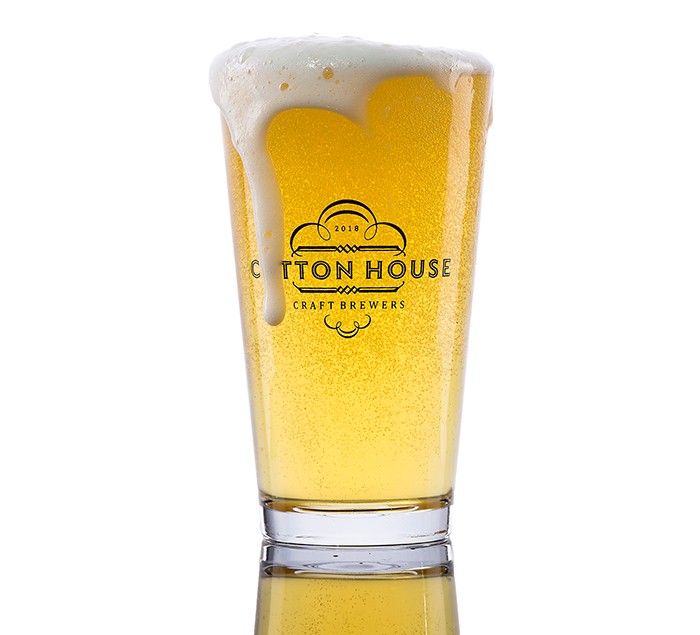It is hard to describe the Cotton House Craft Brewers Pilsner without using the word crisp. The pale gold beer is both dry and hop forward. The German noble hops give it herbal and spicy notes to balance the cracker-like malt soul. This Pilsner is brite — a word brewers use to say that a beer is clear.
Chances are you do not know the name Jamie McMillan, but if you like beer and live in the Triangle, you are likely familiar with his work. McMillan is a combat veteran and a German-trained brewmaster. His resume includes Aviator and stints at the now-closed Draft Line and Lincoln breweries. Now at Cotton House, McMillan is an imposing figure. He speaks with confidence about beer, and it’s fitting for him to be known for brewing Pilsners.
In 1842 Josef Groll, an imposing German brewmaster, developed the first pale lager. The style of beer came to be known as Pilsner — named for Pilsen, the Czech Republic town where it was first made. Since then, Pilsner has been the most dominate style of beer on Earth.
The original Pilsner beer was developed with terroir, a wonderful French word that means “land taste.” It is the quality that makes grapes grown in France’s Burgundy region different from those from New York.
Like Groll and his fellow brewers at the original Pilsner brewery (today Pilsner Urquell), McMillan and his team at Cotton House use terroir and locally grown hops. Art Robertson, a former student of McMillan’s, owns Running Turtle Hops Farm in Alamance County. Robertson works with N.C. State University to create hops that can be a commercially viable crop in North Carolina. Those experimental varieties can be tasted in Cotton House’s other beers, like the amber ale.
To call Cotton House’s public face, located in downtown Cary, a taproom does it a great disservice. Built in 1900, the Pasmore House is a national historic site. Made modern and beautiful on the inside by Cary’s Aura Interiors, Cotton House is a comfortable and inviting third place. Check out the back of the coasters for a fitting motto: “Hops, History, House — It’s All Local.”
While the beer itself is currently brewed at a production facility in Fayetteville, you owe it to yourself to visit the tap house that is more of a ‘Tap Home’.
- Small but Mighty
- The Company Women
- Don’t Call it Networking
- Nonprofit Spotlight: Polka Dot Mama Melanoma Foundation
- Pet Parade
- Buying Peace of Mind
- Small Business Spotlight: Pupsi
- Restaurant Profile: G.58 Cuisine
- Liquid Assets: Bourbon Whiskey by Old Nick Williams Co.
- Liquid Assets: Conviction Bourbon
- Liquid Assets: Broadcloth Pilsner
- Carolina Reaper: Hottest of the Hot
- From the Editor: May 2019







